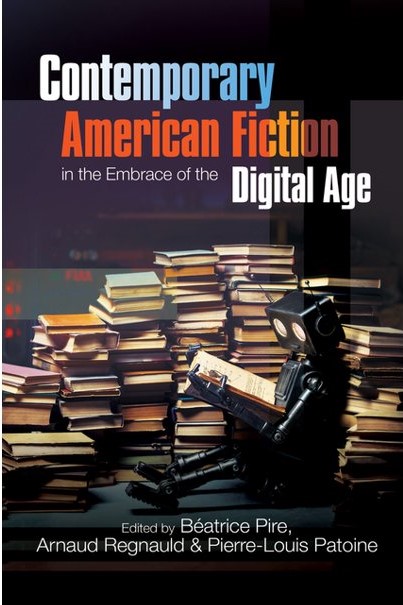- Contributor
- Editors
- Publisher
- Year
- ISBN
- Language
- Jessica Allen Hanssen
- Béatrice Pire, Arnaud Regnauld & Pierre-Louis Patoine
- Sussex Academic
- 2021
- 9781789760835
- English
This collection aims to examine the relationship between American fiction and innovations that marked the first decades of the 21st century: the Internet, social media, smart objects and environments, artificial intelligence, nanotechnologies, genetic engineering and other biotechnologies, transhumanism. These technological innovations redefine the way we live in and imagine our world, interact with each other and understand the human being in his or her ever closer relationship to the machine – a human being no longer, as in the past, cared for or repaired, but now enhanced or replaced. What about our artistic and cultural practices? Are these recent advances changing language and literature? How is fiction transformed by technological progress and what representations of progress can it oppose? Can fiction offer a critique of the new media and the upheavals they precipitate? How does the temporality of literature respond to a technical time subjected to the imperative of efficiency, where the present is a slave to the future? Do virtual worlds challenge the primacy of literary fiction as a privileged mode of escape from daily life? In a context where software can generate literary works, can the force of poetical advent still oppose algorithmic logics? What becomes of the body in a world in which its technical extensions increase the externalization of its cognitive functions in media artifacts and digital networks? In order to explore these questions, scholars here investigate the American fiction of Russel Banks, Don DeLillo, David Foster Wallace, Jonathan Lethem, Tao Lin, Richard Powers, Kenneth Goldsmith, Jennifer Egan or Jonathan Franzen as well as the Cyberpunk genre and the Neuronovel.
The 2004 short-story collection Oblivion features numerous and significant references to and plot points about sophisticated 20th and 21st century technology – mechanical, chemical, medical, communicative – but of the eight stories featured in this collection, none of them feature what is perhaps the biggest technological innovation of their time, the internet. The stories are set in a time and place in which search engines, file sharing, and dot-com commerce are all enabled by the World Wide Web and in widespread use, although not as fully developed as today’s internet, and yet even this early experience of internet communication is curiously absent from the experience of the narrators and characters in this collection.
Rather than ignoring the impact of internet-driven reality, Wallace, in Oblivion, rather engages it indirectly through the creation of its lack, thus creating a more subtle critique of the emptiness and loneliness he perceives as a part of the modern condition than if he had addressed the internet’s development directly. The stories are not pre- or post-internet, but they represent the paradox created between the internet’s insistence on instant gratification and the reality that, for Wallace, this gratification can never achieve its fullest aims: inclusion, awareness, or satiation. Because the internet is absent from the stories, and yet Wallace’s reader remains profoundly aware of its presence, the reader is forced to consider her own engagement with technology, and to confront her own sense of despair against that of the characters in a way that defamiliarizes the modern human experience and thus renders the stories all the more poignant.
The chapter therefore discusses several of the stories in Oblivion, including “Mister Squishy,” “Good Old Neon,” “Oblivion,” and “The Suffering Channel,” in consideration of their engagement with technology of various kinds, but not with the internet, with the aim of exploring their implications at the turn of the 21st century as a premonitory statement on the emptiness of technology’s promise.

